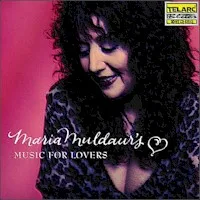
Styles: Vocal And Piano Jazz
Year: 1973
File: MP3@320K/s
Time: 29:02
Size: 68,9 MB
Art: Front
(2:05) 1. It Don't Mean A Thing If It Ain't Got That Swing
(3:18) 2. I Ain't Got Nothing' But The Blues
(2:27) 3. Satin Doll
(3:49) 4. Mood Indigo
(2:53) 5. Don't Get Around Much Anymore
(2:05) 6. I'm Beginning To See The Light
(2:37) 7. I've Got To Be A Rugcutter
(3:36) 8. I've Got It Bad And That Ain't Good
(1:55) 9. Tulip Or Turnip
(2:18) 10. It's Kind Of Lonesome Out Tonight
(1:53) 11. Poco Mucho
Edward Kennedy "Duke" Ellington (April 29, 1899 – May 24, 1974) was an American composer, pianist and bandleader of jazz orchestras. He led his orchestra from 1923 until his death, his career spanning over 50 years. Born in Washington, D.C., Ellington was based in New York City from the mid-1920s onward, and gained a national profile through his orchestra's appearances at the Cotton Club in Harlem. In the 1930s, his orchestra toured in Europe. Though widely considered to have been a pivotal figure in the history of jazz, Ellington embraced the phrase "beyond category" as a liberating principle, and referred to his music as part of the more general category of American Music, rather than to a musical genre such as jazz. Some of the musicians who were members of Ellington's orchestra, such as saxophonist Johnny Hodges, are considered to be among the best players in jazz. Ellington melded them into the best-known orchestral unit in the history of jazz. Some members stayed with the orchestra for several decades.
A master at writing miniatures for the three-minute 78 rpm recording format, Ellington often composed specifically to feature the style and skills of his individual musicians.Often collaborating with others, Ellington wrote more than one thousand compositions; his extensive body of work is the largest recorded personal jazz legacy, with many of his extant works having become standards. Ellington also recorded songs written by his bandsmen, for example Juan Tizol's "Caravan", and "Perdido", which brought a Spanish tinge to big band jazz. After 1941, Ellington collaborated with composer-arranger-pianist Billy Strayhorn, whom he called his writing and arranging companion. With Strayhorn, he composed many extended compositions, or suites, as well as additional short pieces. Following an appearance at the Newport Jazz Festival, in July 1956, Ellington and his orchestra enjoyed a major career revival and embarked on world tours. Ellington recorded for most American record companies of his era, performed in several films, scoring several, and composed stage musicals. Due to his inventive use of the orchestra, or big band, and thanks to his eloquence and charisma, Ellington is generally considered to have elevated the perception of jazz to an art form on a par with other traditional musical genres. His reputation continued to rise after his death, and he was awarded a special Pulitzer Prize for music in 1999. https://en.wikipedia.org/wiki/Duke_Ellington
Teresa Brewer (May 7, 1931 – October 17, 2007) was an American pop singer whose style incorporated elements of country, jazz, R&B, musicals and novelty songs. She was one of the most prolific and popular female singers of the 1950s, recording nearly 600 songs.Theresa Veronica Breuer was born in Toledo, Ohio, the eldest of five siblings. Her father was a glass inspector for the Libbey Owens Company (now part of Pilkington Glass), and her mother was a housewife. When she was two years old, her mother entered her in an audition for a radio program, Uncle August's Kiddie Show on Toledo's WSPD. She performed for cookies and cupcakes donated by the sponsor. Although she never took singing lessons, she took tap dancing lessons. From age five to twelve, she sang and danced on the Major Bowes Amateur Hour, then a popular touring radio show. Her aunt Mary traveled with Theresa until 1949, when Theresa wed William Monahan.
At the age of 12, Brewer returned to Toledo and ceased touring in order to have a normal school life. She continued to perform on local radio. In January 1948, the 16-year-old won a local competition, and (with three other winners) was sent to New York to appear on a talent show called Stairway to the Stars, featuring Eddie Dowling. It was at about that time that she changed the spelling of her name from Theresa Breuer to Teresa Brewer. She won a number of talent shows and played night clubs in New York (including the Latin Quarter) https://en.wikipedia.org/wiki/Teresa_Brewer
It Don't Mean A Thing If It Ain't Got That Swing














